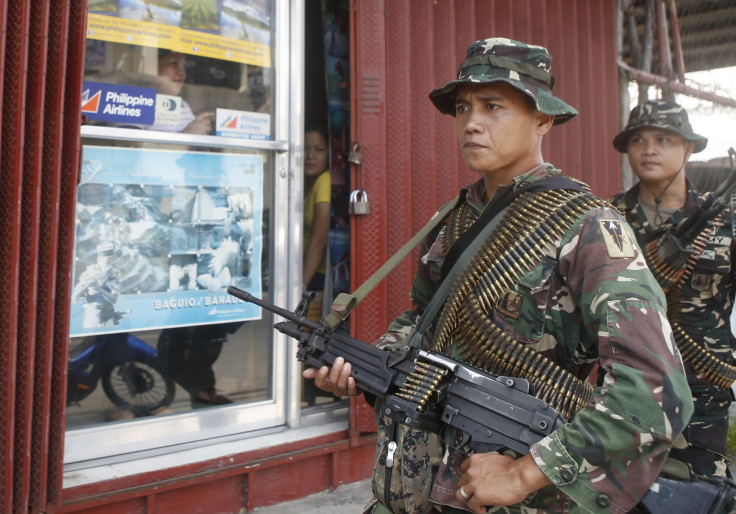Philippines Bus Bombing: Islamic State-Tied Militants Deny Responsibility, Could Be Work Of Extortionists

The Philippines’ military accused a radical Islamist group that identifies itself as an ally of the Islamic State terrorist group of carrying out a bus bombing Tuesday that killed 10 and left 42 wounded in the southern part of the country, according to First Post. A spokesman for the rebel group, the Bangsamoro Islamic Freedom Fighters (BIFF), denied a role in the bombing.
The bombing was an attempt to disrupt the peace process between the Philippine government and a rival rebel group, the military said, according to Reuters. The Philippines signed a peace agreement with the Moro Islamic Liberation Front (MILF) in March after 40 years of fighting. The peace deal creates an autonomous Islamic region on the island of Mindanao, but BIFF disagrees with the terms of the deal, the army says.
The military reasoned that BIFF was behind the Tuesday attack because the bombing technique was similar to the one used in a suspected BIFF bus bombing in November, said a spokesman. The remote-detonated mortar that decimated the bus and killed mostly students, is a favored method of an apprentice of Filipino bomb-making expert Abdul Basit Usman, a notorious figure in the country whom the U.S. State Department believes to be hiding out in central Mindanao.
Abu Misry Mama, a spokesman for BIFF, said the military was lying to smear the group. BIFF, made up of a few hundred rebels, broke off from MILF in 2008 and pledged allegiance to the Islamic State in August, according to AFP. “Bombing civilians would not benefit us,” he said. “The [military] is fabricating stories again to malign us.”
The military has not entirely ruled out the possibility that the bombing was the work of the extortionist Al Khobar crime gang, which has bombed buses in the past after the bus companies refused to pay protection fees to the group. Al Khobar is largely made up of former rebels, according to military experts, and is also known to use mortar shells detonated by mobile phones.
© Copyright IBTimes 2025. All rights reserved.






















